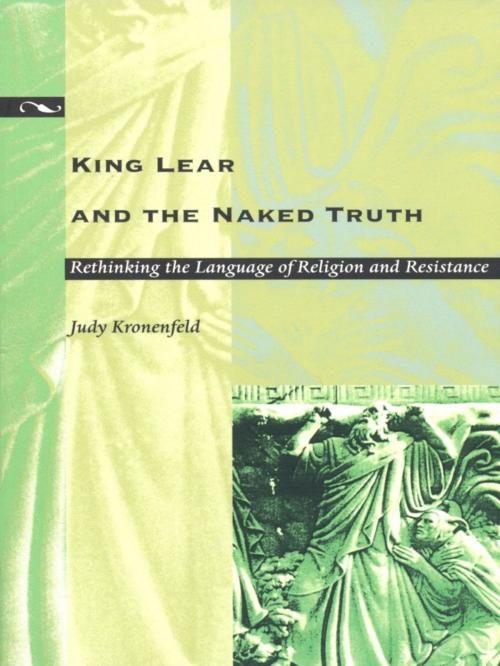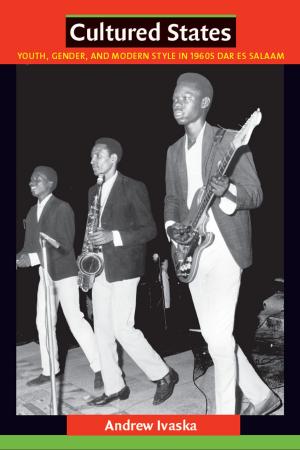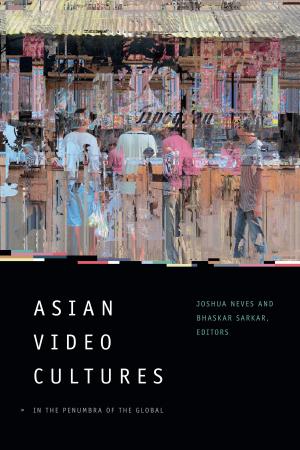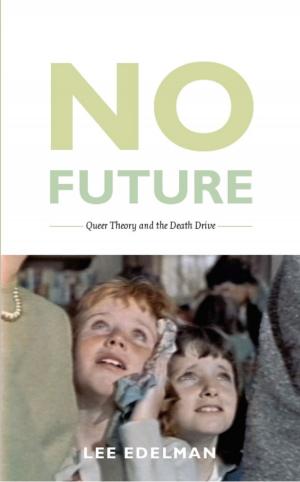King Lear and the Naked Truth
Rethinking the Language of Religion and Resistance
Fiction & Literature, Literary Theory & Criticism, British, Nonfiction, Entertainment, Drama, Shakespeare, Reference & Language, Language Arts, Linguistics| Author: | Judy Kronenfeld | ISBN: | 9780822379454 |
| Publisher: | Duke University Press | Publication: | August 1, 2012 |
| Imprint: | Duke University Press Books | Language: | English |
| Author: | Judy Kronenfeld |
| ISBN: | 9780822379454 |
| Publisher: | Duke University Press |
| Publication: | August 1, 2012 |
| Imprint: | Duke University Press Books |
| Language: | English |
Taking King Lear as her central text, Judy Kronenfeld seriously questions the critical assumptions of much of today’s most fashionable Shakespeare scholarship. Charting a new course beyond both New Historicist and deconstructionist critics, she suggests a theory of language and interpretation that provides essential historical and linguistic contexts for the key terms and concepts of the play. Opening the play up to the implications of these contexts and this interpretive theory, she reveals much about Lear, English Reformation religious culture, and the state of contemporary criticism.
Kronenfeld’s focus expands from the text of Shakespeare’s play to a discussion of a shared Christian culture—a shared language and set of values—a common discursive field that frames the social ethics of the play. That expanded focus is used to address the multiple ways that clothing and nakedness function in the play, as well as the ways that these particular images and terms are understood in that shared context. As Kronenfeld moves beyond Lear to uncover the complex resonances of clothing and nakedness in sermons, polemical tracts, legislation, rhetoric, morality plays, and actual or alleged practices such as naked revolts by Anabaptists and the Adamians’ ritual disrobing during religious services, she demonstrates that many key terms and concepts of the period cannot be tied to a single ideology. Instead, they represent part of an intricate network of thought shared by people of seemingly opposite views, and it is within such shared cultural networks that dissent, resistance, and creativity can emerge. Warning her readers not to take the language of literary texts out of the linguistic context within which it first appeared, Kronenfeld has written a book that reinterprets the linguistic model that has been the basis for much poststructuralist criticism.
Taking King Lear as her central text, Judy Kronenfeld seriously questions the critical assumptions of much of today’s most fashionable Shakespeare scholarship. Charting a new course beyond both New Historicist and deconstructionist critics, she suggests a theory of language and interpretation that provides essential historical and linguistic contexts for the key terms and concepts of the play. Opening the play up to the implications of these contexts and this interpretive theory, she reveals much about Lear, English Reformation religious culture, and the state of contemporary criticism.
Kronenfeld’s focus expands from the text of Shakespeare’s play to a discussion of a shared Christian culture—a shared language and set of values—a common discursive field that frames the social ethics of the play. That expanded focus is used to address the multiple ways that clothing and nakedness function in the play, as well as the ways that these particular images and terms are understood in that shared context. As Kronenfeld moves beyond Lear to uncover the complex resonances of clothing and nakedness in sermons, polemical tracts, legislation, rhetoric, morality plays, and actual or alleged practices such as naked revolts by Anabaptists and the Adamians’ ritual disrobing during religious services, she demonstrates that many key terms and concepts of the period cannot be tied to a single ideology. Instead, they represent part of an intricate network of thought shared by people of seemingly opposite views, and it is within such shared cultural networks that dissent, resistance, and creativity can emerge. Warning her readers not to take the language of literary texts out of the linguistic context within which it first appeared, Kronenfeld has written a book that reinterprets the linguistic model that has been the basis for much poststructuralist criticism.















